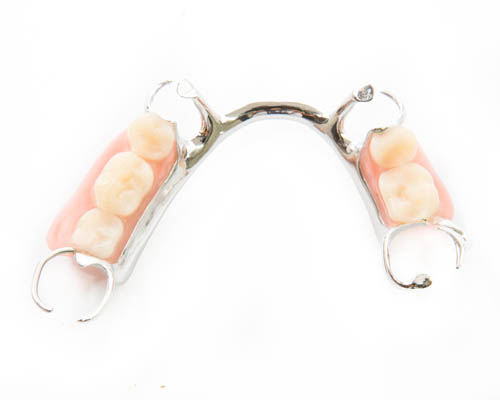Pros and Cons of Flexible Partial Dentures

If you wear dentures, then you may have heard of flexible partial dentures. These unique dentures can provide advantages that traditional dentures do not.
If you are considering a switch to flexible partial dentures, have a discussion with your dentist about some of the benefits that come with these dentures.
Pros of flexible partial dentures
Before you speak with your dentist, look at some of the benefits of these dentures:
They do not break easily
Since dentures are made of harder material, dropping them can often cause a crack. Broken dentures are expensive and time-consuming to replace. Flexible partial dentures have more give and will withstand falls well.
Softer than regular dentures
Regular dentures consist of hard material that can rub against the soft tissue of your gums. This irritation is painful and will often deter you from regular denture use.
Flexible partial dentures are made of softer material that is easier on your gums. You can wear your dentures all day and enjoy the best parts of life like delicious meals with loved ones.
Do not require adhesive or metal
Metal can be problematic for a few reasons, especially if you are trying to board a flight! However, another advantage of removing metal from your mouth is that metal can naturally cause inflammation and redness of your gums. This can lead to pain while wearing traditional dentures.
Did you know the adhesive used in dentures also can irritate the tissue of your mouth? Flexible partials dentures do not require adhesives, which can reduce any oral irritation.
Do not hide your natural gums
Flexible partial dentures often consist of a flexible light pink material that allows the gums to show through. This gives you a more natural smile than other types of dentures.
Faster to make
Traditional dentures take a minimum of 4 visits and 3-6 weeks to prepare. This does not include the process of tooth extraction and the additional time and visits required. When you add this extra time, it can take up to ten weeks to complete the entire process. This can be incredibly taxing and add unnecessary complication to your life.
Cons of partial flexible dentures
There are also some disadvantages to keep in mind before speaking with your dentist:
Bacterial buildup
The material used in flexible partial dentures can be prone to bacterial buildup. The soft and flexible material is friendly to bacterial growth. For this reason, it is very important to practice regular oral hygiene and brush your partial dentures every day. Failing to do so can lead to gingivitis and gum disease.
Not repairable
While flexible partial dentures are much harder to break than traditional dentures, they do not repair as easily. If you break them, it may require a replacement of the entire set.
Not permanent
Flexible partial dentures have a less permanent feel for those looking for a teeth replacement option that feels more natural and requires less maintenance.
Are you considering flexible partial dentures?
Like everything else, all types of dentures have their advantages and disadvantages. Make sure to discuss these with your dentist to find out if flexible partial dentures are right for you. If you do not have a regular dentist and have more questions, call our office to begin restoring your smile.
Request an appointment here: https://addevalefamilydentistry.com or call Addevale Family Dentistry at (770) 430-3087 for an appointment in our Griffin office.
Check out what others are saying about our dental services on Yelp: Partial Dentures in Griffin, GA.
Related Posts
Partial dentures should fit comfortably, but there may be times when they need a slight adjustment. This can occur for a variety of reasons, such as the shifting of natural teeth or periodontal changes. The dentist can check on the fit and comfort of the partial dentures with every check-up visit and make adjustments when…
A dental crown is a common restoration that provides essential protection and structural support for damaged or weakened teeth. Over time, even the most durable dental crown can experience wear, misalignment, or develop issues that compromise your oral function and health. Here are five signs that indicate it is time to replace or refit a…
General dentists recommend adding flossing to your oral hygiene routine once a day. This important practice removes plaque and food debris that brushing alone cannot reach. While string floss is an effective way to clean between your teeth, several alternative methods can make the cleaning process more comfortable and efficient.Flossing is an essential part of…
Dentures restore chewing power and an aesthetically pleasing smile, but the right food choices help everything feel natural. During the first few days, soft textures build comfort while you can learn new habits. With simple techniques and smart options, eating with dentures becomes easy and enjoyable. Here are some examples of what denture wearers can…
